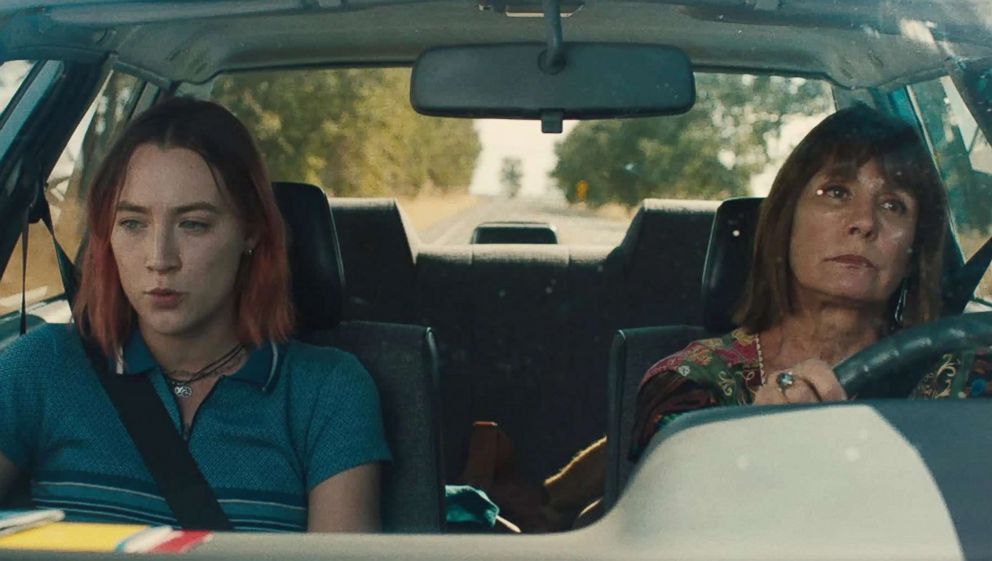
Lady Bird, Greta Gerwig’s Golden Globe winning 2017 film, depicts the story of a young woman’s experience in her high school year leading up to college in the early 2000s. Whilst it has a star-studded cast (an Oscar-nominated Saoirse Ronan is Lady Bird, Timothée Chalamet is Kyle, a young man in her orbit) I found the most engaging and poignant interactions were between Lady Bird and her mother Marion, played by fellow Oscar-nominee Laurie Metcalf.
The film contains all the usual components of a coming-of-age indie piece that I would expect to love. However, upon first watch, this was far from the case. Despite the fact Lady Bird was grappling with the same tumultuous transitional period 17-year-old me faced in the months approaching university, I could not relate to her. I felt her character was moody, intolerable and ungrateful, attributes of which Marion bore the brunt.
It was only on a revisit two years later, in light of Greta Gerwig’s 2023 box office sensation Barbie, that I was deeply moved by the film. I found myself relating to Lady Bird in ways I could not acknowledge on that first watch, especially in the relationship between Lady Bird and her mother. The opening shot has them sleeping in bed, facing one another, two generations side by side. That they are both wildly different and stubborn in nature, yet unequivocally alike, resonates throughout the film.
The following car scene, in which Marion and Lady Bird butt heads when Lady Bird wishes to ‘live through something’ and her mother is indignant at this thirst for excitement, spirals into complete disarray, devoid of any of the previous scene’s tranquillity. It’s a scene familiar to many daughters and mothers alike; Gerwig captures the sudden shift in atmosphere resulting from a simple disagreement, something I have experienced on numerous occasions.
As Lady Bird hurls herself out of the moving car and the opening credits roll, I saw myself in this overreaction, which simultaneously creates a caricature of the dramatic teenage daughter, but is all too relatable.
On first watch I felt that Marion was dismissive and perhaps even resentful of her own daughter. But, through Metcalf’s performance in her early scenes as Marion, we see her caring and thoughtful nature. Despite a key theme of the film centering around the family having no money, Marion buys a gift for a coworker who only recently had a baby, evidence of her maternal nature as a mother herself. Her life is centred around her children, something Lady Bird forgets at points throughout the movie. Lady Bird’s own adolescent self-criticism is channelled through her mother’s passing comments, and it is perhaps because we daughters are extensions of our mothers, that we assume they can dislike us as much as we dislike ourselves.
It is apparent that Marion loves her daughter, and wants her “to be the very best version of yourself that you can be.” Having mentioned previously in the film that her own mother was cruel, it is safe to assume that when Marion is hard on her daughter, Lady Bird can recognise it’s because “she loves me a lot”. Marion is trying to be better than her own mother, and while she may retain some of the harsher qualities of the previous generation, many scenes in the film are evidence of her compassionate temperament.

This quality Lady Bird herself inherits. Upon finding out that her boyfriend Danny (played by Lucas Hedges) is a closeted homosexual, Lady Bird promises not to tell his family. Despite feelings of resentment and betrayal that could fuel a spitefulness to out him, she holds him as he cries and assures him she will keep his secret. This is particularly touching when remembering that gay marriage in California was not legalised until 10 years on from when the film was set. Lady Bird’s good-natured disposition parallels that of her mother.
The final section of the film, when Marion discovers that Lady Bird has applied and been accepted to a college on the opposite side of the country without telling her, was a heartache to sit through. Marion is upset and refuses to talk to her daughter, which builds tension in the climactic airport scene when Lady Bird is ready to fly away and Marion wrestles with whether to see her off.
Where 17-year-old me rolled her eyes, 19-year-old-me bawled them out. I enjoyed how Marion, in her silent treatment, was as indignant and stubborn as her daughter (and many other teenage girls). This made her seem younger in a way that reminds us even adults can regress into coping mechanisms that do not reflect the wisdom and maturity they are meant to acquire.
When she changes her mind and races for the airport, it is too late, and we see yet another layer to Marion, regretting missing this key event, and grieving the absence of her maturing daughter. Parents gain as much from their children’s youth and curiosity, as children do through their parents’ wisdom and maturity. In this film I feel this exchange occurs constantly between daughter and mother.
Greta Gerwig captures girlhood, motherhood, and the tie between the two. The final line of dialogue in the movie, “I love you, thank you,” resonates as an ode to all mothers. Despite the incessant bickering and remarks mothers and daughters reserve only for each other, Lady Bird stands as a reminder of the importance of this relationship. And the immeasurable capacity of love that each holds for the other. I feel if I were to revisit this film in 30-years’ time, having had a daughter of my own, I would enjoy it even more, and from a perspective closer to my own mother’s.
Celia Evans
Letterboxd: theliaa
